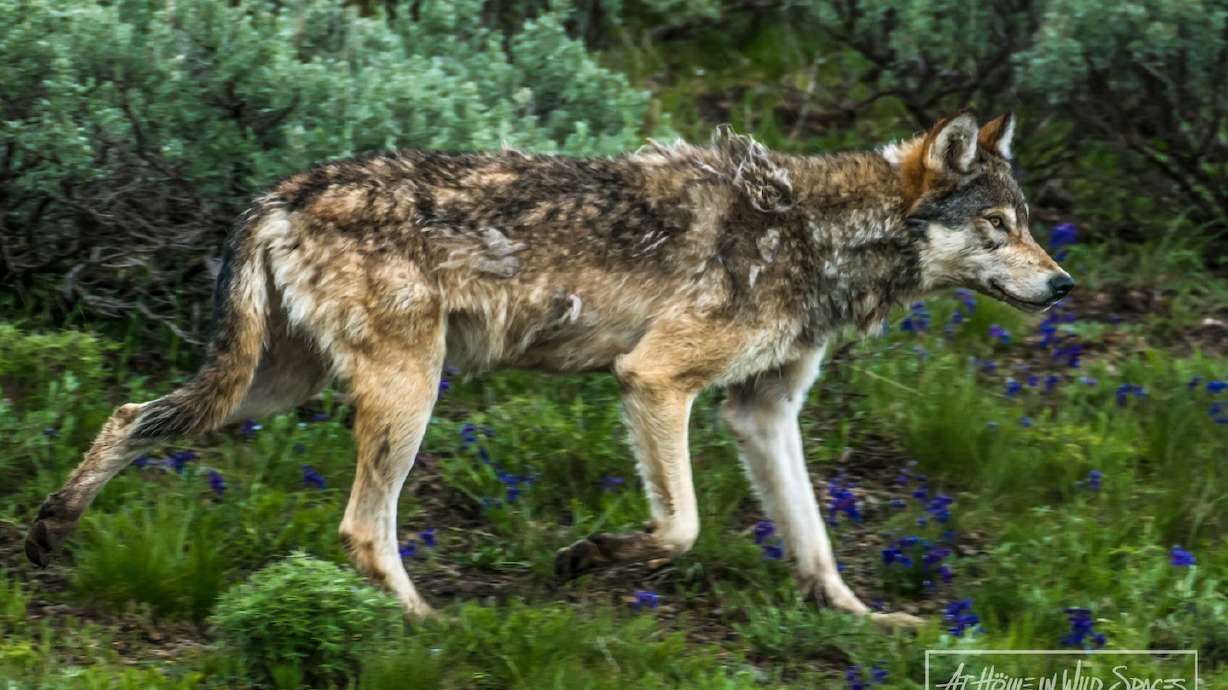Estimated read time: 4-5 minutes
This archived news story is available only for your personal, non-commercial use. Information in the story may be outdated or superseded by additional information. Reading or replaying the story in its archived form does not constitute a republication of the story.
SALT LAKE CITY — An episode of cruelty toward a young wolf in the neighboring state of Wyoming begs the question if such torture is legal in Utah.
Torturing wild animals is legal throughout the western United States, including in Utah.
Cody Roberts encountered a young wolf while riding his snowmobile near Daniel, Wyoming, on Feb. 29. Reports are that he allegedly ran over it with his snowmobile, "injuring it so bad that it could barely stay conscious," an account from WyoFile states.
The practice, known colloquially as "yote whacking" and generally practiced on coyotes, was just the opening act in a disturbing episode of wanton animal cruelty that sent shockwaves across the globe, and is forcing Americans to reckon with potential contradictions and gaps in wildlife management policies and practices.
After running over the young wolf with his snowmobile, Roberts allegedly tightly taped the injured animal's muzzle and outfitted it with a shock collar and leash before parading it around a bar for hours, Jackson Hole Community Radio reported. Cowboy State Daily obtained a photograph of Roberts posing with the wolf pup outside the bar, before he allegedly killed it.
Roberts was fined $250 by Wyoming Game and Fish, not for his behavior, but for "the illegal possession of a live, warm-blooded wild animal."
Across the country, cruelty laws generally only apply to domestic animals and livestock. Wild animals, game species and otherwise, have no protections against cruelty in Wyoming — or in Utah, according to Faith Heaton Jolley, Utah Department of Wildlife Resources spokeswoman.
"Utah's animal cruelty laws do not apply to wildlife, as defined in State Code Section 23A-1-101, including protected and unprotected wildlife," she said.
Like Wyoming, Utah also has provisions against keeping live wild animals captive without proper certifications. But unlike Wyoming, where wolves were taken off the endangered species list in 2017, wolves remain protected under the Endangered Species Act throughout Utah — with the exception of the area "north of I-80 and east of I-84, where wolves have been delisted, but are still considered protected wildlife," according to Jolley.
Killing a wolf "unlawfully" could be prosecuted as a class B misdemeanor or a third-degree felony in Utah, she said, but cruelty would not factor into the charge.
When asked if there were any regulations against "yote whacking" or running down coyotes and other unprotected species with motor vehicles, Jolley responded, "Coyotes are not protected wildlife in Utah, so their harvest is not regulated in Utah. So, there are currently no clear identified regulations for how they can be harvested."
Even in the case of prized game populations, including deer, elk, moose and bison, no protections exist against cruelty or inhumane treatment when animals are legally harvested.
"Many hunting and fishing laws in Utah are designed to enforce ethical and morally responsible behavior," Jolley said. "However, sometimes ethical behavior can be considered a higher code of conduct than just following the law."
Based on admittedly anecdotal accounts from DWR game officers, Jolley believes "most hunters have a respect for the wildlife they harvest and want to be good stewards of the environment," she said, adding, "As with any activity, there are always 'bad actors' who can shed a negative light on the overall sport."
But do wildlife management laws, or the lack thereof also create space or even protections for those "bad actors" who would torment and even torture wildlife for sport?
That is the question at the heart of the recent controversy in Wyoming ... and the dilemma now faced by many states.
New lawsuits have been filed to relist wolves as an endangered or protected species throughout Wyoming, claiming Wyoming's laws and policies are either facilitating cruelty or inadequate to manage wolves at healthy population objectives.
Some legislators in Wyoming are considering how to respond to the recent incident and whether wildlife management laws and policies need to be updated. Provisions against "yote whacking" have previously failed to pass in the state Legislature, and both the U.S. Forest Service and Bureau of Land Management have responded to calls to ban the practice — and other forms of cruelty — because outside of national parks, the management of nonendangered wildlife is the domain and responsibility of the states.








